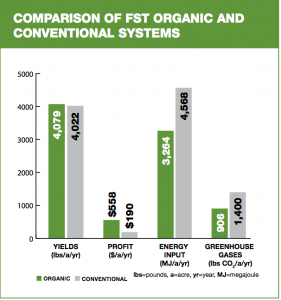The post To Till or Not to Till appeared first on Neem.World.
]]>What are the benefits of this system? Does it really make a difference? There are hundreds of benefits, and it does make a difference to the health of the soil and the environment.
Theoretically, conventional plowing is used to prevent soil erosion. However, what happens in practice is that the topsoil suffers from degradation. According to the World Wildlife Fund, half of all topsoil on the planet has been lost in the past 150 years. This does not simply affect the fertility of the soil and ability to grow crops, but it also reduces the soil’s ability to hold water thereby increasing pollution and sediment levels in water through run-off. With no-till farming, this topsoil is preserved with help from the chosen cover crop. This is excellent for protecting the soil and the environment.
The un-tilled soil is able to retain more water, preventing runoff and keeping the soil healthier, even in times of drought. This increase in water also benefits microbes and nutrients in the soil, allowing more beneficial microbes to grow and retain nutrients. Additionally, less work and machinery is required, making the process more cost-effective and applicable to developing regions of the world. Though no-till farming is sometimes paired with synthetic systems, the environmental benefits are astronomically higher when paired with organic, like using neem-based fertilizers and pesticides. By keeping the whole process natural with biopesticides like neem, the entire system – the farmer, the earth, and the consumer – all benefit.
The post To Till or Not to Till appeared first on Neem.World.
]]>The post Sustainably Feed the World with Organic Farming appeared first on Neem.World.
]]>Their findings are that:
- Organic yields match conventional yields
- Organic outperforms conventional in years of drought
- Organic farming systems build rather than deplete soil organic matter, making it a more sustainable system
- Organic farming is more efficient – it uses 45% less energy
- Conventional systems produce 40% more greenhouse gases
- Organic farming systems are more profitable than conventional
Rodale Institute, 2011
In some agricultural areas of the United States, topsoil is eroding away at rates 12x faster than the government had estimated. Instead of regenerating and fertilizing the soil, conventional systems have eroded away soil and the nutrients and benefits they contain. In comparison, the Rodale Institute’s organic systems showed that soil health improved, was able to regenerate, and retained more water than conventional systems.
The organic manure and legume system both showed an increase in carbon containment, higher water retainment and reduced runoff, and are able to retain the natural nutrients longer than the conventional system retained the synthetically added nutrients.
In addition to increasing the vitality of the soil, the organic systems were found to make 3x more profits than the conventional systems. However, if they were to take away that price premium, yields are the same for both systems, meaning that, with lower input costs in energy, the organic system is actually more profitable, no matter what!
These are just a few of the reasons why organic farming is not only better for the planet, but better for farmers and for you! Instead of being exposed to synthetic, dangerous chemicals, demand sustainable, neem-based farming methods so that you can focus on eating truly healthy, sustainable food.
The post Sustainably Feed the World with Organic Farming appeared first on Neem.World.
]]>